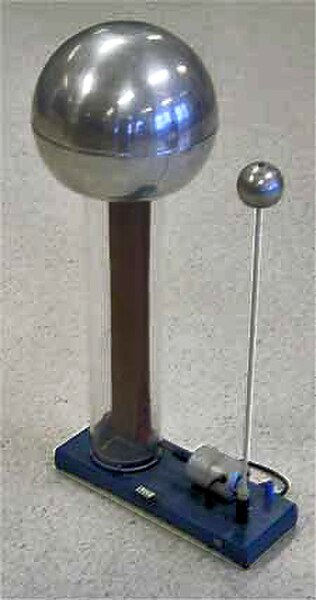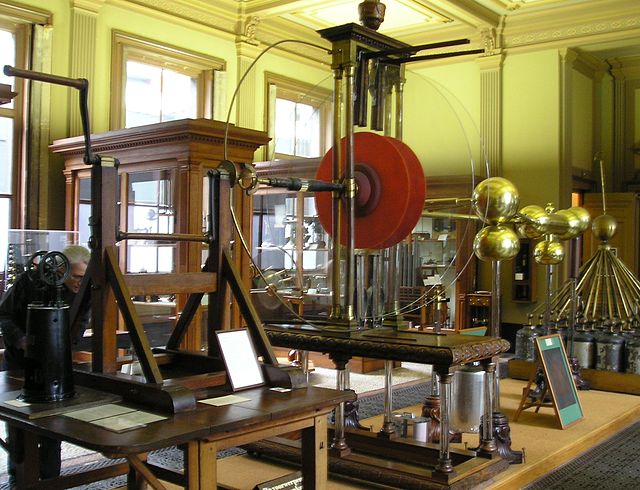Johann Christian Poggendorff
Johann Christian Poggendorff, was a German physicist born in Hamburg. By far the greater and more important part of his work related to electricity and magnetism. Poggendorff is known for his electrostatic motor which is analogous to Wilhelm Holtz's electrostatic machine. In 1841 he described the use of the potentiometer for measurement of electrical potentials without current draw.
Johann Christian Poggendorff
Biographisch-literarisches Handwörterbuch zur Geschichte der exakten Wissenschaften, 1863
An electrostatic generator, or electrostatic machine, is an electrical generator that produces static electricity, or electricity at high voltage and low continuous current. The knowledge of static electricity dates back to the earliest civilizations, but for millennia it remained merely an interesting and mystifying phenomenon, without a theory to explain its behavior and often confused with magnetism. By the end of the 17th century, researchers had developed practical means of generating electricity by friction, but the development of electrostatic machines did not begin in earnest until the 18th century, when they became fundamental instruments in the studies about the new science of electricity.
A Van de Graaff generator, for class room demonstrations
12" Quadruple Sector-less Wimshurst Machine (Bonetti Machine)
Typical friction machine using a glass globe, common in the 18th century
Martinus van Marum's Electrostatic generator at Teylers Museum






